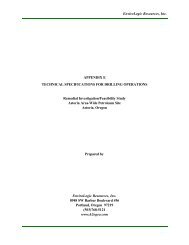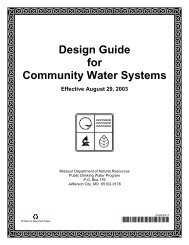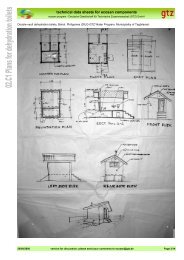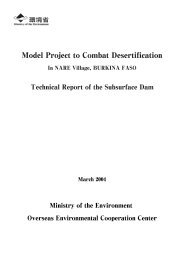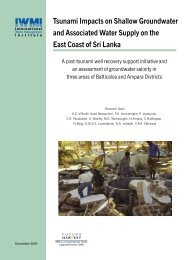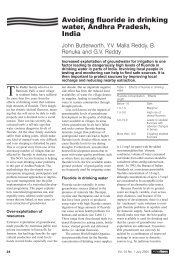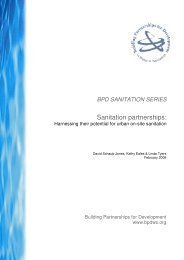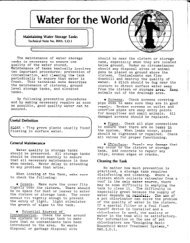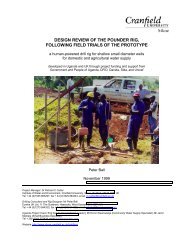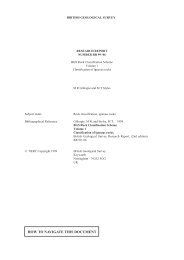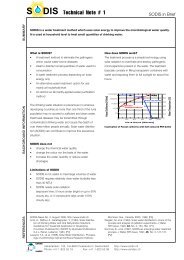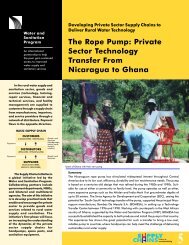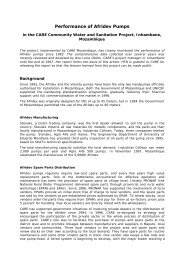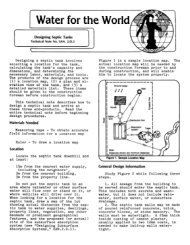Marketing Compost (EAWAG) - The Water, Sanitation and Hygiene
Marketing Compost (EAWAG) - The Water, Sanitation and Hygiene
Marketing Compost (EAWAG) - The Water, Sanitation and Hygiene
You also want an ePaper? Increase the reach of your titles
YUMPU automatically turns print PDFs into web optimized ePapers that Google loves.
Choosing appropriate respondents<br />
A small composting business wishes to conduct market research among<br />
local householders to assess their interest in the product. <strong>The</strong>y pay visits<br />
to homes in the evenings <strong>and</strong> briefly interview the head of each household.<br />
Although they had carefully developed the questionnaire <strong>and</strong> spent<br />
time analysing the data, they realise that they had interviewed the wrong<br />
people. In these households, the head of the household generally has no<br />
interest in gardening <strong>and</strong> simply pays the gardener a monthly salary for his<br />
work. <strong>The</strong>y should have interviewed the gardener to underst<strong>and</strong> his attitude<br />
<strong>and</strong> views on compost, the products he currently uses <strong>and</strong> his budget.<br />
This mistake costs the business time <strong>and</strong> money.<br />
Remember that participants in any research have a right to confidentiality. Be<br />
sure to explain the purpose of the research <strong>and</strong> ask permission to use <strong>and</strong><br />
record their responses. Participation in any research should be voluntary.<br />
Asking questions<br />
It is important to phrase questions in such a way that they do not influence the<br />
response. Questions can be posed in different ways to reveal different information<br />
as illustrated in the following examples:<br />
Open questions reveal general information <strong>and</strong> indicate how much the<br />
person knows about the issue. Example: Can you tell me about the difference<br />
between compost <strong>and</strong> manure<br />
Closed questions are more restrictive <strong>and</strong> allow mainly “yes” or “no” or<br />
one clear answer focusing on a topic. <strong>The</strong>y can be useful when you need to<br />
generate quantitative data, (i.e. numbers to analyse: 70 per cent say ‘yes’, 30<br />
per cent say ‘no’). Example: Do you think compost is more beneficial to plants<br />
than manure <strong>The</strong>se closed questions are often followed by an open question<br />
asking “Why” or “How”.<br />
Leading questions can influence the answer of the person asked. <strong>The</strong>y<br />
should be avoided except when used in gentle provocation, as individuals will<br />
oppose a leading question only in case of strong objections. Example: <strong>Compost</strong><br />
is much better than manure, isn’t it<br />
Alternative questions give a choice of answers <strong>and</strong> preferences. Example:<br />
For your seedlings do you prefer a soil mixture with compost or<br />
with manure<br />
28 <strong>Marketing</strong> <strong>Compost</strong>—Background




